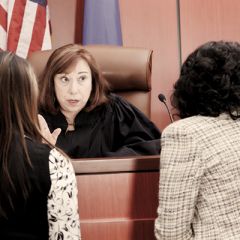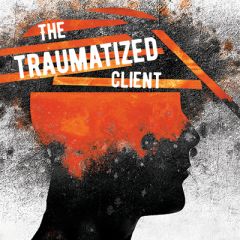Consider the following sequence of events: The trial court enters summary judgment in favor of the defendant and strikes the affidavit of plaintiff’s expert witness. Within 30 days, the plaintiff files a motion for reconsideration of the foregoing order. The motion is stricken because the plaintiff failed to provide the judge with a courtesy copy of the motion. The plaintiff then renotices the motion (and, presumably, provides a courtesy copy this time). The motion is heard and denied on the merits six weeks later. Within 30 days of the denial, the plaintiff files notice of appeal. If, based on the foregoing, you thought the plaintiff perfected a timely appeal, think again, writes Reuben A. Bernick in his April Illinois Bar Journal article, “Perils of the Postjudgment Motion,” which offers a practical examination of postjudgment motion practice.
Illinois Bar Journal
-
April 20, 2020 | Practice News

-
April 13, 2020 | Practice News

Restorative justice offers a method of discussing, coming to terms with, and resolving differences using a voluntary, common-sense approach. It brings people together in various ways depending on the nature of the problem, the needs of the participants, and how or where the process takes place. In their April Illinois Bar Journal article, “The Virtuous Circle,” Illinois Appellate Court Justice Michael B. Hyman and Judge Martha A. Mills (ret.), suggest that since lawyers have embraced arbitration and mediation, it’s now time for them to consider how to incorporate restorative justice into their practices.
-
April 8, 2020 | Practice News

The Illinois State Bar Association invites Young Lawyers Division (YLD) members to establish yourselves as experts in your practice area and compete for $3,500 in prize money by entering the Annual Lincoln Award Legal Writing Contest.
Submissions should be useful, practical articles on topics important to practicing lawyers. Submissions will be considered for publication in the Illinois Bar Journal.
-
April 6, 2020 |
Practice News
In times of crisis, people come together in numerous ways. One is by sharing stories. The ISBA's publications team is interested in your coronavirus experience-whether funny, sad, inspiring, or eye-awakening. Submit your coronavirus story and we will select standouts to run in ISBA publications, including the Illinois Bar Journal's May 2020 issue. A story can pertain to your personal life or your law practice, as long as the coronavirus plays a central role in the telling.
-
April 6, 2020 | Practice News

A notice of appeal is a very simple pleading and in most instances may be as short as one page. All that is required for a notice of appeal to be effective is that it be timely filed, name the party who is appealing, specify the judgment or parts of the judgment being appealed, and describe what relief the party appealing is seeking from the Illinois Appellate Court. However, as past ISBA President J. Timothy Eaton notes in his April Illinois Bar Journal article, “The Timely and Properly Filed Notice of Appeal,” its simplicity should not overshadow its importance. Many appeals have been lost before they could be heard on the merits, Eaton writes, because the appellate court lacked jurisdiction. The appellate court’s jurisdiction is dependent upon a proper notice of appeal being timely filed. Without it, only extraordinary remedies by the Illinois Supreme Court can save the appeal. Eaton, partner at Taft Stettinius & Hollister in Chicago, walks through the ins and outs of a notice of appeal properly and timely filed.
-
March 31, 2020 | Practice News

Hackers break into digital homes by exploiting weaknesses. Those knowledgeable about passwords say attorneys need to make sure their passwords are sufficiently strong, consider two-factor authentication and other additional defenses, and explore the possibility of using a password manager to create and store their digital keys. “You have to start with what your passwords are intended to provide—security,” Chad Beckett, of the Beckett Law Office in Urbana and Tuscola and chair of the ISBA Standing Committee on Legal Technology, tells the Illinois Bar Journal in its April 2020 feature article, “Getting Real About Passwords.” In the article, Beckett and other tech-savvy professionals share expert advice on creating secure passwords, how to manage them all, and why it’s essential that attorneys use strong passwords.
-
March 23, 2020 | Practice News

For decades, Illinois has been a popular legal destination for plaintiffs’ counsel looking to litigate their respective toxic tort cases and take advantage of what they believe are plaintiff-friendly exposure laws and sympathetic juries in certain venues. Many asbestos claims are filed on behalf of plaintiffs without any connection to Illinois. Most of these plaintiffs live, work, and claim to have been exposed in Indiana, Michigan, or Wisconsin; some plaintiffs come from farther away. Despite Illinois’ forum-non-conveniens stance having been settled by the Illinois Supreme Court since 2012, plaintiff firms continue to file case after case in Illinois courts. In addition to the out-of-state plaintiff filings, plaintiff firms have also brought many out-of-state defendants into Illinois asbestos litigation—“the name first ask questions later” approach, which, argues Craig Liljestrand in his March 2020 Illinois Bar Journal article, “Can Asbestos Ever Be Mitigated From Illinois Courts?” raises more than a few eyebrows from the defense bar familiar with Illinois Supreme Court Rule 137(a).
-
March 16, 2020 | Practice News

Something was amiss in the Village of Barrington Hills—or so it seemed to a recent panel of the First District Illinois Appellate Court when it decided Drury v. The Village of Barrington Hills. The facts of the case prompted the court to weigh in on the constitutionality of a repealed zoning ordinance that regulated equine activity and put a new twist on the application of the LaSalle/Sinclair factors, which have been traditionally used to evaluate legislative zoning decisions. In his March 2020 Illinois Bar Journal article, "Horsing Around," Adam Kingsley examines how the Illinois Supreme Court has rejected other standards Illinois courts have used to evaluate facial challenges to zoning ordinances and also discusses the First District Appellate Court's suggestion that when a zoning ordinance is challenged, courts may now consider the reasoning and motives that lay behind the ordinance.
-
March 9, 2020 | Practice News

In their March 2020 Illinois Bar Journal article, “Talk Shows,” Allen Wall and Caitlyn Culbertson consider the phenomenon of the deponent who has undergone careful preparations to answer deposition questions truthfully and in the most simple and direct manner possible, but then ends up providing answers that go far beyond what is necessary. In so doing, the deponent often unwittingly promotes the interests of one litigant at the expense of another. Why do deponents often provide far more information than is needed and what can attorneys do to help deponents avoid talking too much during deposition questioning? As many attorneys have never been witnesses answering questions in a deposition, Wall and Culbertson suggest that exploring a talkative deponent’s mindset will allow them to better prepare such clients and witnesses for depositions.
-
March 2, 2020 | Practice News

As rewarding as it sometimes is, working with traumatized clients also can be difficult: A client’s trauma can undermine the client’s own goals for representation. And sharing the burden of a client’s trauma can wear on the attorney. But by understanding the nature of trauma, how it’s expressed, and how to respond to it, lawyers can anticipate and prepare for its unpredictable effects. The Illinois Bar Journal’s March 2020 cover article, “The Traumatized Client,” examines what may be taking place in the minds of traumatized clients and introduces several strategies attorneys can use to help the client work through the trauma and focus on the case.

